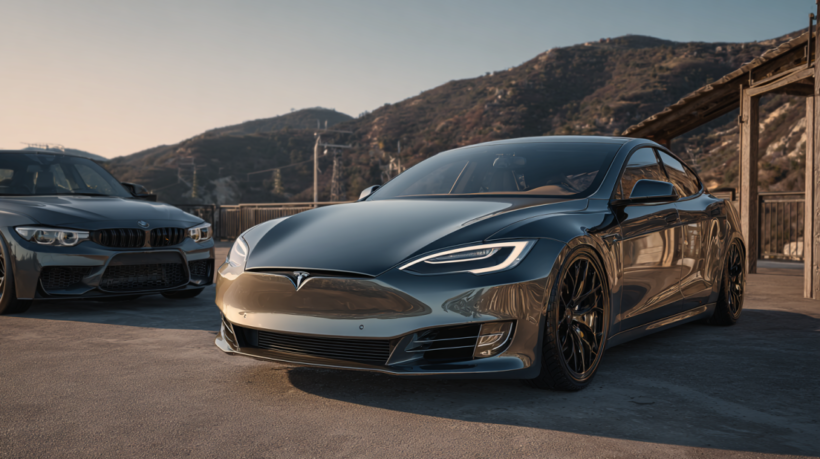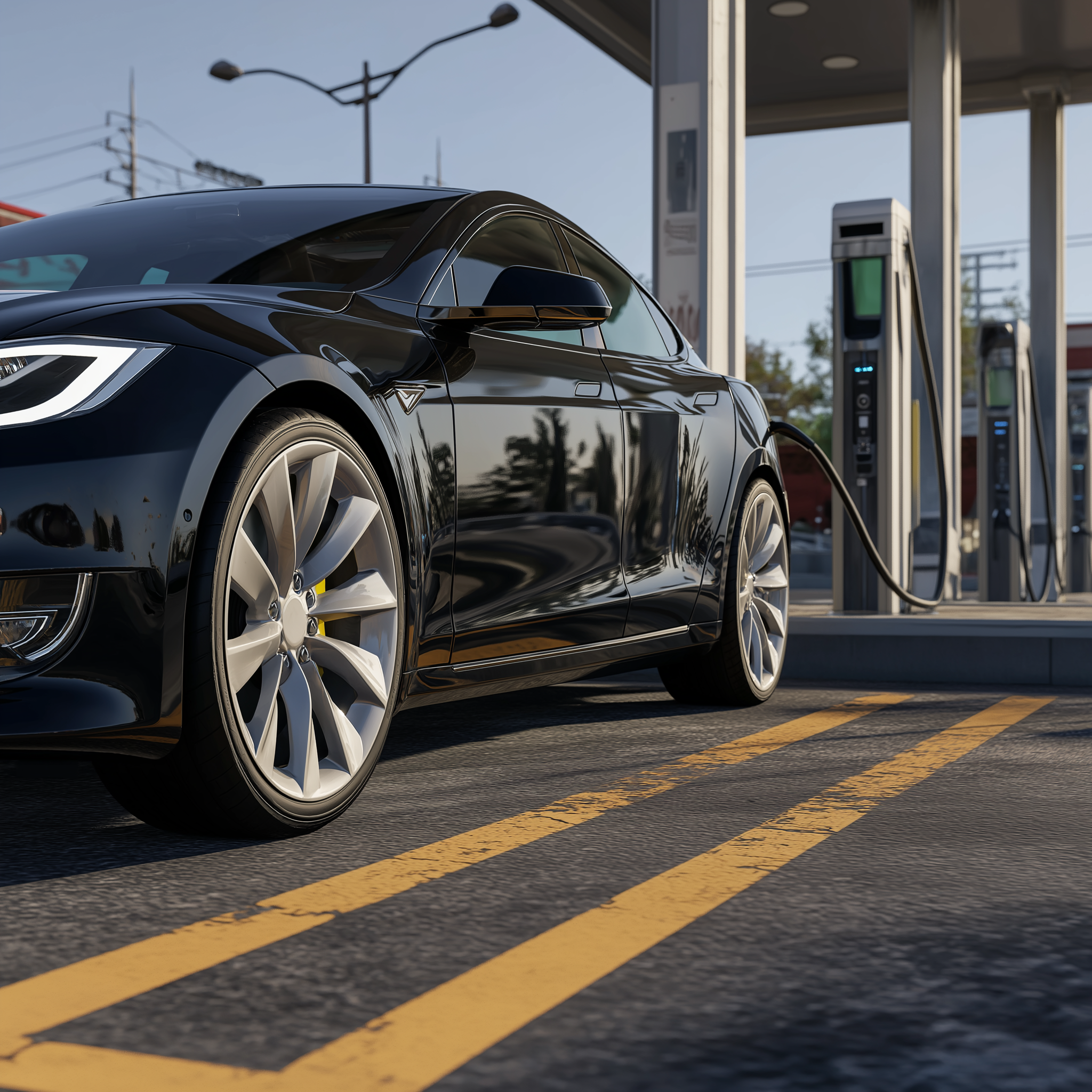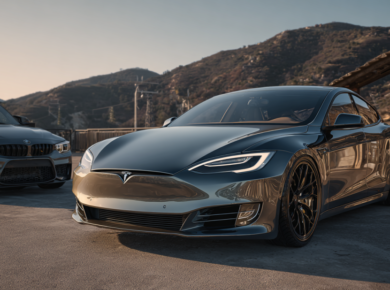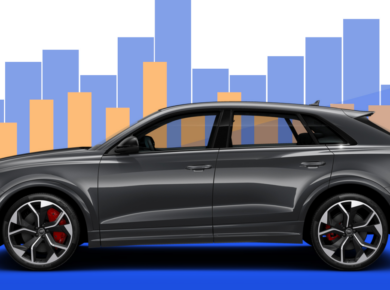For a lot of buyers, choosing between an electric car and a gasoline car is their next major decision. In 2025, nearly every automaker has at least one electric vehicle in their lineup, but let’s be honest – gasoline cars are still everywhere on American roads. So the debate, electric vs gasoline cars, usually isn’t about which one exists, but which one actually works for your life, your budget, and the way you drive every day.
In this guide, we’ll walk through: price, how easy it is to keep fueled or charged, the environmental side of things, how they feel to drive, and what they’re like to own over the long run.
Price and Ownership Costs
Price is usually where shoppers start. A gasoline-powered vehicle still comes in cheaper at the low end. You can walk onto a lot and pick up a small gasoline car for under $20,000. Even the most affordable electric cars start closer to $25,000, sometimes more.
That gap shrinks once incentives come into play. Federal tax credits are still around in 2025, and plenty of EV car models qualify, and some states even add extra rebates. Knock a few thousand off, and electric car prices don’t look quite as intimidating.
Then there’s the cost of keeping the thing running. Electricity vs gasoline usually comes out in favor of electricity, especially if you’ve got a spot to charge at home. Public fast charging can be more expensive, but even then, gas stations usually cost more per mile.
Maintenance is another piece of the puzzle. Gas-powered cars have complicated engines with hundreds of moving parts. Belts, pumps, filters, exhaust systems – they all need attention sooner or later. Electric vehicles skip most of that – you’ll still be buying tires and wipers, and brakes eventually, but overall costs tend to be lower.
That said, batteries are also a consideration. Whilst they’re sturdier now thanks to modern battery technology, with most warranties lasting eight years or more, if one does need replacing outside warranty, it’s not cheap. That’s the trade-off when you compare electric car cost vs gasoline.
Fueling vs. Charging
This is where habits matter. With gas vs electric cars, the difference in convenience jumps out fast. Gasoline cars lean on a network of millions of stations. Fill up in five minutes, drive off, done. No range anxiety, no planning. That’s a large part of why gas-powered vehicles remain the default choice for so many.
Charging works differently. If you can charge at home, your whole routine changes – plug it in at night, wake up to a full charge. You almost forget about “fueling.” For lots of people, that’s worth more than the speed of gas stations.
On the road, though, gasoline still has the edge. Even with the best fast chargers, adding range takes 20 to 40 minutes. A gasoline-powered vehicle is back on the highway in less than five. While some don’t mind the break, grabbing a coffee or stretch, others find it frustrating. It depends on what you value more – speed or convenience at home.
Environmental Impact
The benefits of electric cars are easiest to see when you look at emissions. A gas-powered car burns fossil fuel every mile, releasing carbon. An electric vehicle, however, has no tailpipe at all. If your local grid leans on renewables, the environmental gains are even bigger.
Of course, it’s not all clean. Disadvantages of electric cars include the way batteries are made. Mining lithium, cobalt, and nickel comes with environmental and social costs. But over the full life of the car, the efficiency of electric cars vs gasoline usually means lower total emissions.
Driving Experience
The electric car vs gas car question isn’t just about numbers – it’s about how they feel behind the wheel. EVs hit you with instant torque, which makes acceleration smooth and, honestly, a little addictive. Tesla models made headlines for it, but even budget EVs pull away from a stoplight faster than most people expect.
Gasoline cars answer back with range and, for some drivers, character. Plenty of people love the sound and feel of an engine, and no electric vehicle can give you that. Gas-powered cars are often lighter, too, though the weight of electric cars vs gasoline isn’t always a disadvantage. Heavy batteries sit low, and that can actually make an EV feel more stable in corners.
Availability in 2025
Considering availability, gasoline still wins for now. From tiny hatchbacks to heavy-duty trucks, gas-powered cars come in more shapes, sizes, and prices. They rule the used market, too, and the different types of gasoline for cars: regular, premium, mid-grade, let you fine-tune performance and cost.
But the EV lineup has grown like crazy. Electric cars vs gasoline cars doesn’t just mean small sedans anymore. In 2025, you’ll see EV trucks, SUVs, luxury models, even sports cars. Nearly every automaker has at least one, with new models available every year.
Whatever you choose, do your homework. For gas cars, check mileage and accident history. For EVs, battery use matters. Tools like a VIN decoder and VIN mileage check help make sure the car you’re looking at is what it claims to be.
Maintenance and Longevity
Gasoline cars have proven they can last 200,000 miles or more with steady care. But that care means constant upkeep – oil changes, cooling systems, exhaust parts, belts, and filters. The bills accumulate over time.
Electric cars cut that list down. With far fewer moving parts, there’s less that can go wrong. Regenerative braking helps, too, stretching out brake life. The one major question mark is the battery. Most last well past their warranties, but when one does need replacing, it’s expensive.
So the gasoline cars vs electric cars trade-off is simple enough: higher ongoing maintenance on one side, lower upkeep with a possible battery replacement on the other.
Lifestyle Fit
At the end of the day, the gas car vs electric choice comes down to your lifestyle.
- Drive long distances often, especially in rural areas? A gasoline-powered vehicle is still more practical.
- Mostly in cities or suburbs, with a place to charge at home? An EV car fits better.
- Focused on lowering carbon emissions? Electric vehicles EVs have the edge.
- Want quick refueling and a cheaper upfront price? Gas still wins for now.
Quick Pros and Cons
Electric Cars
- Lower running costs and higher energy efficiency
- Smooth acceleration and stable handling
- Need charging access and planning ahead
- Higher purchase price, with battery concerns in the long term
Gasoline Cars
- Cheaper to buy at entry level
- Quick refueling almost anywhere
- More moving parts, more maintenance
- Dependence on fossil fuel and higher emissions
Final Thoughts
Electric vs gasoline cars in 2025 isn’t just a question of “old versus new.” Both have strengths, both have drawbacks. Electric cars vs gas cars lean toward efficiency, lower emissions, and reduced maintenance. Gas cars vs electric cars still lean on convenience, up-front affordability, and the safety of a fueling network that isn’t going anywhere soon.
The decision is personal. Some drivers will see the benefits of electric cars, quiet rides, lower costs, fewer shop visits, as the clear winner. Others will stick with gasoline-powered vehicles for the flexibility and the comfort of knowing there’s always a gas station around the corner.
Whichever way you lean, take the time to compare electric car cost vs gasoline, weigh the pros and cons of electric vehicles against your own needs, and check the details with a VIN report before buying. The electric vehicle vs gasoline vehicle debate won’t end in 2025, but the right answer for you should fit your life right now.





